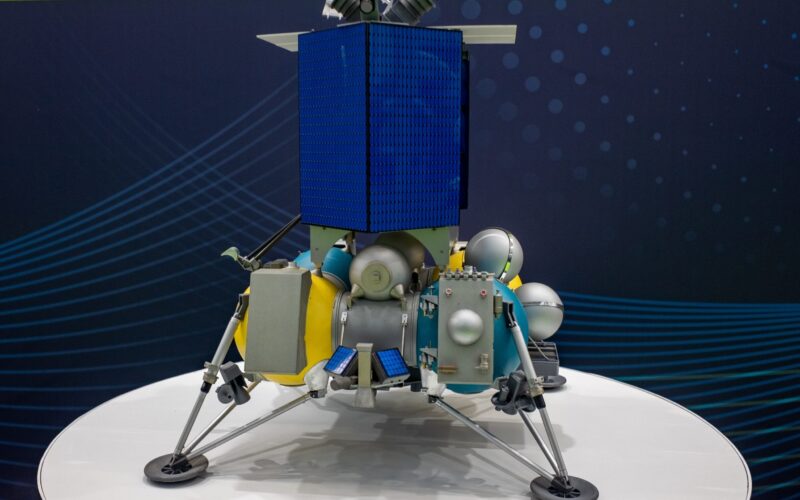Luna-25, the first mission to the Moon in the history of modern Russia, has been postponed yet again and is now scheduled for August 2023, Roscosmos (Russian Space Corporation) has announced.
The launch was initially scheduled for August 2022, then delayed to July 2023, and now is being held up yet again due to the final cycle of ground control infrastructure tests.
Roscosmos stated that “In order to achieve the required reliability of the mission, it is necessary to take additional measures that will ensure the stable operation of ground controls at the stages of carrying out corrections and landing on the surface”.
The Soyuz-2 rocket series vehicle for Luna-25 is aiming to land at the south pole of the Moon. This would be the first time a Russian spacecraft has engaged in a lunar mission in fifty years.
The primary objective of the mission is to prove the landing technology, which is a crucial element of lunar exploration. The lander should carry 30 kilograms of scientific instrument payload, including a robotic arm for soil sampling and possible drilling hardware. The mission of its predecessor Luna-24 in 1976 successfully delivered about 170 grams of lunar soil to Earth.
The planning of the Luna-25 mission, also known as the Luna-Glob lander, began in 1998 as an attempt to reprise the glory days of the Soviet Luna program. However, the project has been postponed multiple times, with the first major setback brought on after the Russian space mission Phobos-Grunt failed in 2011.
Currently, the launch for the year-long Luna 25 mission, involving the Soyuz-2.1b rocket with a Fregat upper-stage engine, is set to take place at Vostochny Cosmodrome in the Amur Oblast, Russia.

